Postoperative Care

What is postoperative care?
Postoperative care is the type of home care service provided after a surgical procedure.
The type of postoperative care you will receive will depend on the type of surgery you have had, alongside your general overall health – often including wound care, pain management, and day-to-day support at home. This begins in the hospital and then can often continue after you’ve been discharged and returned home.
Your doctor should give you comprehensive instructions before you’re discharged regarding what to expect upon returning home, and there is a Clinical Nurse Specialist in every area who can be called on for medical advice. But it’s also important to ask questions, or to have someone ask questions on your behalf if necessary.
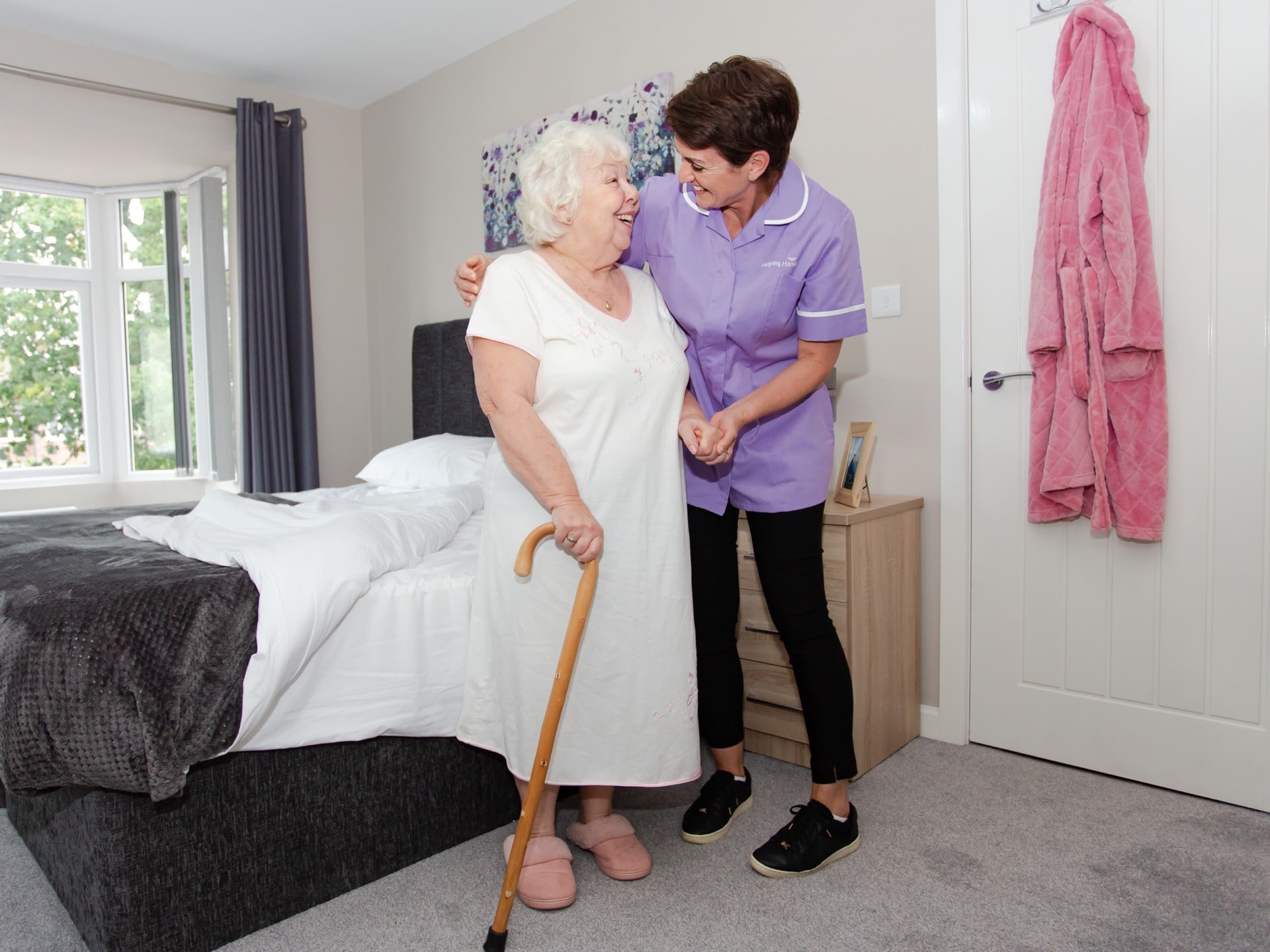
Useful things to ask questions about include:
Medication
What medications or other supplies will I need when I go home, how often should I be taking them and at what times of day, and will I need help collecting, organising and administering them?
Support at home
Will I need the support of a caregiver or physiotherapist at home, will I be active and mobile enough to maintain my home and look after pets, and what type of care might I need?
Recovery
How can I aid my recovery, are there certain things I should do or avoid doing, what physiotherapy exercises can I undertake, is there a particular diet should I follow?
Time frame
How long will it take for me to complete my rehabilitation and be fully recovered, and how can I ensure the recovery process is as quick and effective as possible?
Postoperative care at home
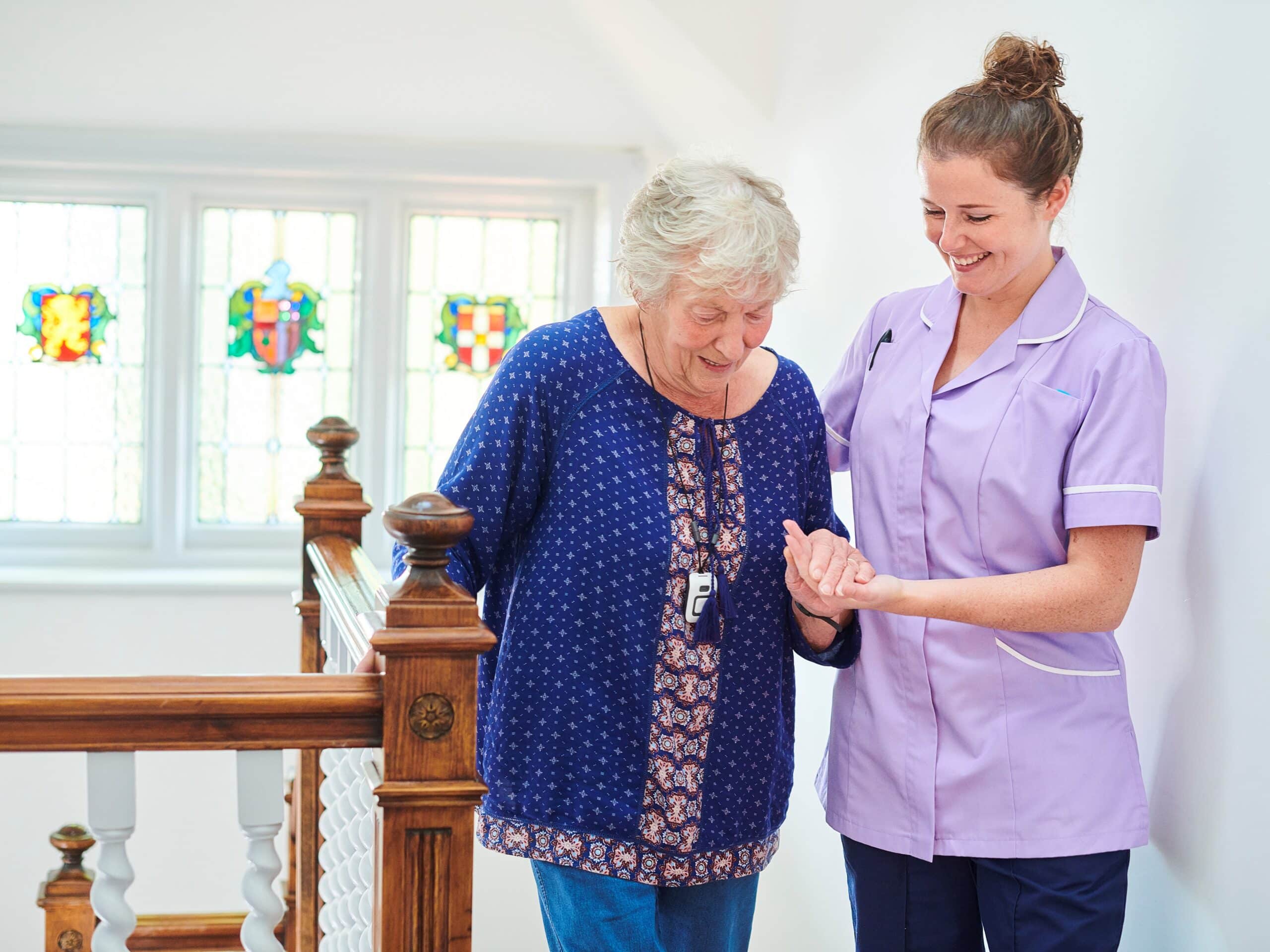
Depending on circumstances, postoperative care can be given in the comfort of home.
For some minor procedures that don’t require a hospital stay, you can return home and receive any support you need. If you are required to stay in hospital for a period of time – after a more serious procedure, for instance – the beginnings of your recovery will be as an inpatient and then often continue when you are at home.
In either circumstance, we are well placed to support you, as you will be fully assessed upon discharge and our experienced home carers will follow hospital recommendations and your personalised support plan to ensure your recovery proceeds as planned.
Benefits of postoperative care at home

Remain in control of your care and routine in the comfort of your own home
By choosing to have your postoperative care at home, you remain in control of your daily life and care needs without the constraints of hospital or care home restrictions. Helping Hands have been providing person-centred care at home since 1989, so it’s no surprise we’re the UK’s most trusted provider.
By having visiting or live-in care in your home, you get to say how your care progresses, and we work with you to ensure your care plan has every detail of your routine included. You’ll see the people you want to, have precious pets close by and enjoy the views you always have from your windows.
Preoperative & postoperative care services
We can help you prepare for your surgery and fully support you in your recovery process.
Ensuring you are in as good health as possible before you have surgery can make a big difference to your recovery following your operation. Before your surgical procedure, you should be aware of what support needs to be in place when you leave hospital and endeavour to have that organised in advance.
However, that isn’t always possible, and sometimes emergency home care needs to be arranged so your recovery can continue as soon as you’re home. Fortunately, Helping Hands can have a carer in your home within 24 hours, so if you’re discharged quicker than you anticipated or your circumstances have changed, we’ll be able to support you from the moment you arrive home.
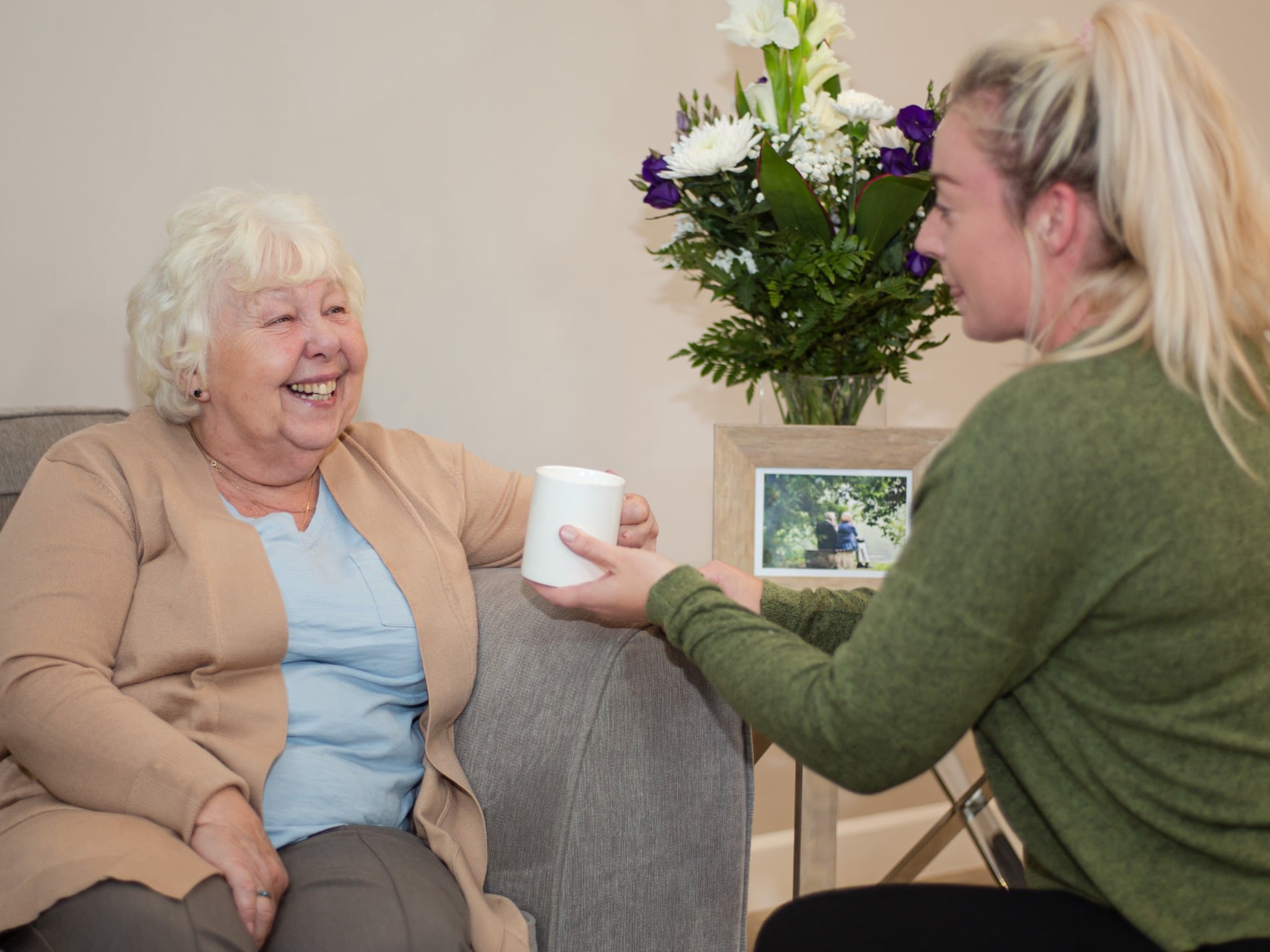
Our postoperative care services
Dependent on your preferences and requirements, we can offer both visiting and live-in post-operative care in our customers’ homes.
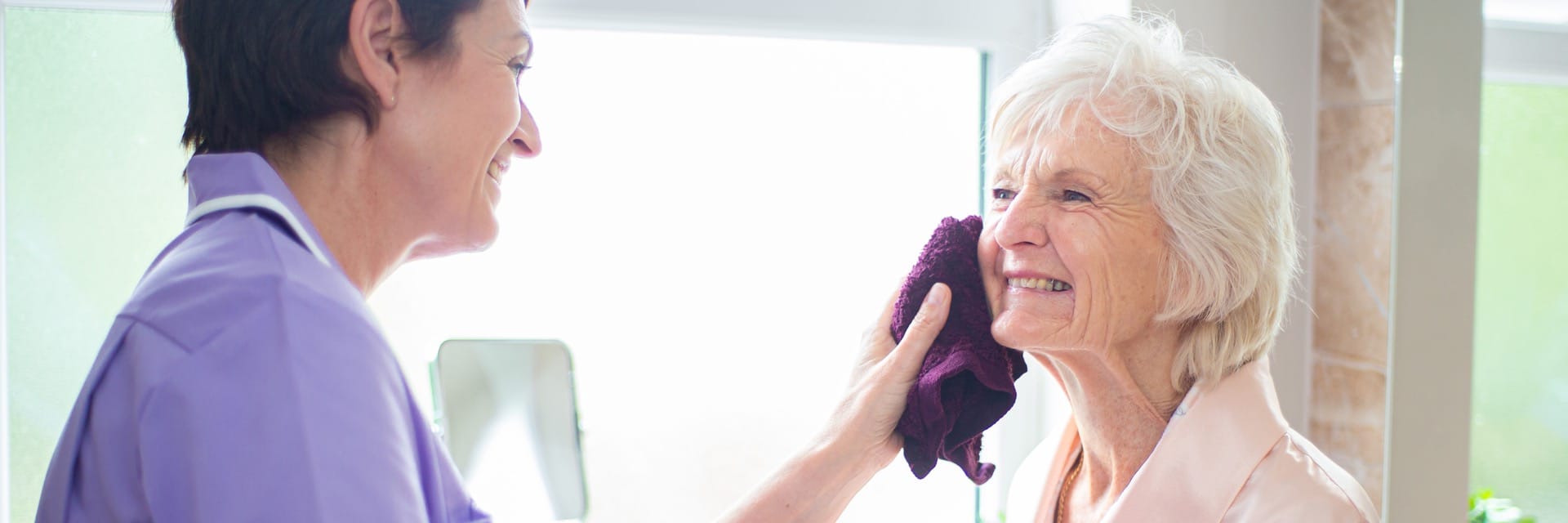
With visiting dementia care, a carer will come to your home at set points throughout the day or week to provide practical, physical and emotional support.
Visits from just 30 minutes per week
Prearranged visits
A personalised support plan
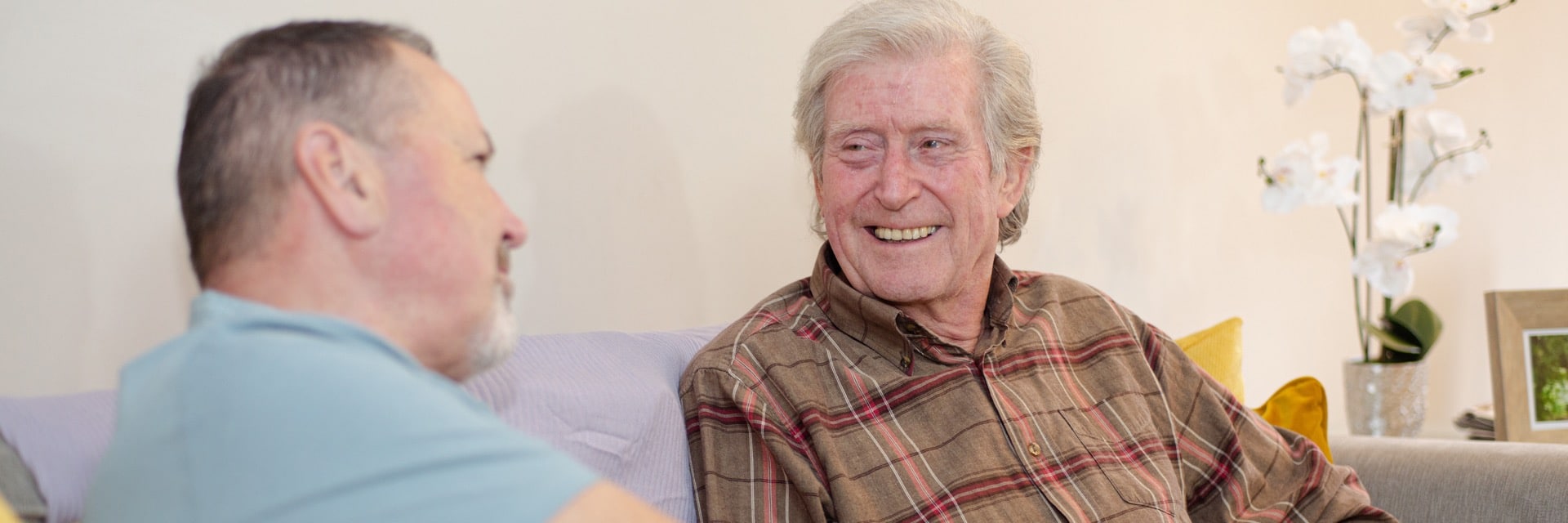
With live-in care, one of our wonderful carers will come to live with you in your home while you recover, helping to support the rehabilitation process
Round-the-clock support
Support at meal times
Carer matched to your personality
Why choose Helping Hands?
We’ve been leading the way in compassionate, person-centred home care for over 30 years.
At Helping Hands, we have been supporting people to live as independently and as well as possible in their own homes since 1989, so we really are the home care experts. We support many of our customers when they’ve been in hospital to ensure that your standard of care is high both before and after your operation. Our carers are dedicated to ensuring the well-being of our customers and go above and beyond to support them with every aspect of their lives. Here are some of the things that make our care exceptional:
Person-centred care
35 years of experience
Driven by family values
Kind, passionate carers
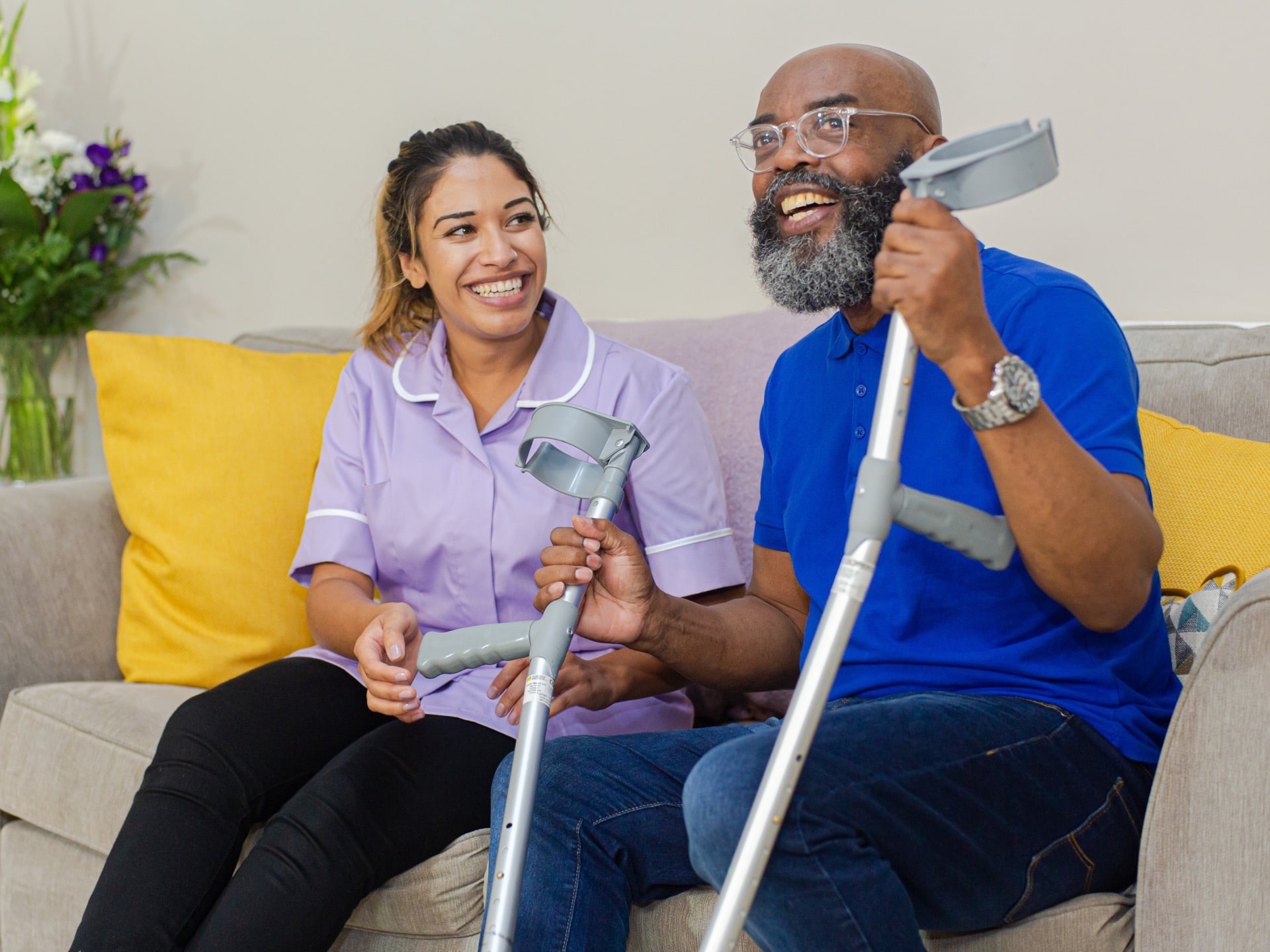
Nurse-led support

We can provide nurse-led care for more complex pre and post-operative needs.
In both types of care, our carers will support you with the hospital’s recommendations – whether that be to increase mobility gradually or only eat certain types of food at first, or whatever it is that you need to help you recover. Our carers will be able to assist you with every aspect of your care, following post-discharge recommendations to ensure your recovery goes as planned.
It’s vital that your doctor’s instructions are followed once you’re discharged and your carer can be part of a wider care team consisting of other healthcare professionals who are coming to your home, such as a district nurse or physiotherapist. Our team of clinical nurses all have extensive experience in the NHS and the private sector.
How to arrange postoperative care
We try to make arranging care simple and stress-free so that we can focus on what really matters: your care needs. Speak to our team today to begin your journey.
Speak to our team
Call our team of experts to talk through your options and any questions you may have
Free home care assessment
Your local Helping Hands manager will visit you to discuss your care requirements
Find your carer
We’ll help to match you with a carer who meets your preferences and has the right skills
Fully regulated by the CQC / CIW
Here at Helping Hands, our home care services are fully managed and regulated by the Care Quality Commission (CQC).
From your very first phone call to our friendly team, every aspect of your home care service is independently monitored and regulated by the CQC and Care Inspectorate Wales (CIW).
What does regulation mean?
Being regulated by these two bodies means our care must meet certain criteria and standards
Why do we choose to be regulated?
We offer a regulated care service so that every customer can have full peace of mind
How does regulation affect my care?
Regulation means that care from Helping Hands will be reliable, consistent and industry-approved
Postoperative Care FAQs
-
What are the different types of postoperative care?
-
Helping Hands offer postoperative care to suit you. We can provide support on a visiting care basis where you have carers coming to your home for as many hours a week as you need them, live-in care where one of our carers lives in your home with you, respite care that covers your existing carer or family members when they need a break, and overnight care to ensure you’re supported around the clock.
-
How much does postoperative care cost?
-
The costs of postoperative care at home can’t just be measured in pounds and pence. To have peace of mind, remain as independent as possible and be in familiar surroundings brings comfort that money can’t buy. We’ll design you a bespoke quote for the care you need, but as an idea, visiting care begins at £31.00 per hour plus a callout charge of £4.50 while live-in care is from £1,595 per week for an individual and £1,595 for a couple. Live-in respite care begins at £275 per day.
-
How important is resting after surgery?
-
While it’s important to rest after surgery, following the guidelines of your medical team, they may also encourage you to do a certain amount of mild activity to ensure you remain supple and your body heals as planned. If you have been given physiotherapy exercises to do or other activities to undertake, your Helping Hands carer will be able to actively support your recovery. Whether that’s by helping you with your physical housekeeping, such as laundry, vacuuming or dusting, or supporting you emotionally, they’ll ensure you’re in the very best hands at all times.
-
How is pain managed at home?
-
Thanks to having our own team of clinical nurses, we can offer complex postoperative care that other companies are unable to. This includes nurse-led care for both pre and postoperative support. We’ll follow your medical practitioner’s recommendations and follow your support plan to the letter to make sure your care progresses as it’s supposed to. We’ll help you to increase your appetite by preparing appropriate foods that you’ll enjoy and we’ll support you to become more mobile again. We’ll follow your post-discharge plan and work as part of your wider healthcare team, and ensure their guidance for pain relief is followed as appropriate.
-
How quickly can post op care be arranged?
-
Postoperative care can be arranged quickly with Helping Hands, sometimes within 24 hours of your call. We’ll work tirelessly to ensure that the care you need is put in place as soon as you need it, while ensuring that all safeguards are respected. If time is of the essence due to an impending hospital discharge, we can work with the relevant healthcare provider to get you back home where you want to be. We provide our carers with skills training and development that far exceeds other care companies, building on their existing experience. No wonder we’re considered the UK’s most trusted home care company, fully regulated by the Care Quality Commission and Care Inspectorate Wales.
Page reviewed by Kathryn Mahon, Regional Clinical Lead , on March 29, 2023.
